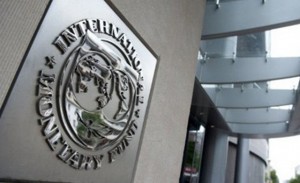
(AFP Photo)
By Rabia al-Bana
A recent International Monetary Fund (IMF) report said that a new set of tax reforms recently implemented by Egypt’s government will increase the country’s GDP by 0.75%.
The report stated, however, that the primary component of the country’s tax reform programme has not yet been implemented because it is still under review by the Shura Council.
The council has so far agreed on amendments to the country’s income and stamp taxes, in addition to legal regulations regarding the latter, but not discussions have taken place regarding amendments to the country’s sales tax code.
The IMF expected Egypt’s GDP to grow 2% over the next year as opposed to 2.2% in 2012, saying that there was is still potential for recovery by the end of 2013 and beginning of 2014 if political reconciliation could be achieved and adequate reforms passed to help secure the confidence of investors.
The report also said that Egypt’s economy continued to face a series of challenges as a result of the absence of political reconciliation and repeated postponement of economic reform packages. These challenges included the need to address the country’s spending budget deficit, create new jobs and speed up the rate of economic growth, in addition to protecting the country’s poorest and most vulnerable citizens. The IMF called on Egypt’s government to explain economic reforms to the Egyptian people and obtain popular support for any reform programme before implementation.
Egypt’s government has been cooperating and consulting with the IMF over the last few months in order to better draft and implement the country’s economic and structural reform package. The package would seek to address the country’s budget deficit, raise government revenues through legislative and tax reform, and reign in spending by altering the country’s subsidies programme, particularly regarding fuel and energy.



